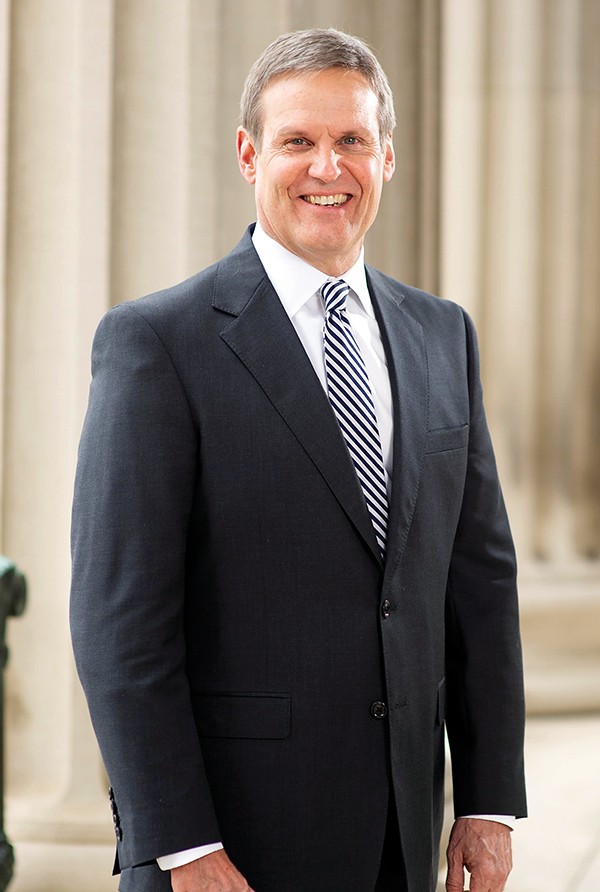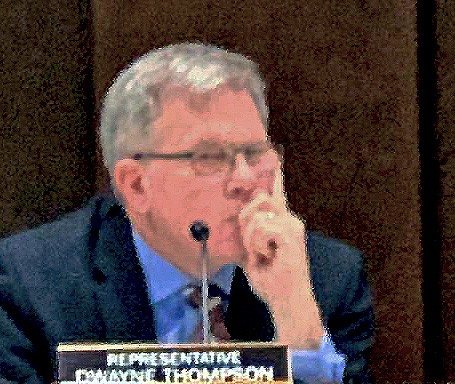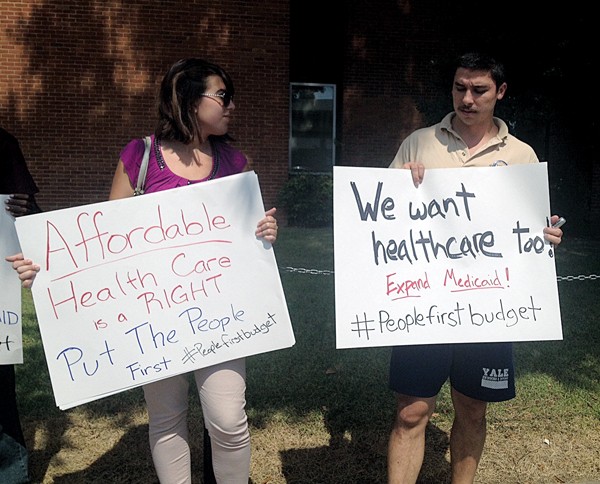This story was originally published by the Institute for Public Service Reporting Memphis.
When Ashlie Bell-Seibers hears about congressional plans to slash Medicaid spending, she thinks about children she knows in Tennessee.
Children like Asher, 12, who sees 17 specialists and who is able to live and be cared for at home because she receives special coverage through TennCare, the state’s Medicaid program.
Then there’s Claire, age 10, who was born with a rare genetic condition that required life-saving open-heart surgery covered by TennCare.
And Aundrea, 8, one of three children in her family with hearing loss, Her growing body requires new and expensive hearing aids covered by TennCare.
Trip, who died at age 2, and whose chemotherapy treatments were covered by TennCare.
“He would have suffered more and died sooner without those treatments,” said Bell-Seibers, who works to support children and youth with special healthcare needs as director of Family Voices of Tennessee at the Tennessee Disability Coalition in Nashville.
Bell-Seibers and other safety net advocates are bracing for severe cuts in federal programs that provide food and health care to millions of lower-income adults and children in Tennessee.
Republican congressional leaders are looking for $2.5 trillion in budget cuts to pay for tax cuts for wealthier individuals and corporations, among other priorities of the incoming Trump administration.
Two of the largest targets seem to be Medicaid (called TennCare here) and SNAP (formerly called food stamps).
“These are massive cuts, bigger than anything we’ve ever encountered,” Gordon Bonnyman, staff attorney and co-founder of the Tennessee Justice Center (TJC) in Nashville, told dozens of safety net advocates in a zoom meeting last week. “They’re going to happen very fast and they’re going to hurt a lot of people.”
Bonnyman said the massive budget cuts will be “camouflaged” in the arcane congressional budget reconciliation process, which is “filibuster-proof,” requiring the approval of a simple majority of members of Congress.
“There are infinite and complex ways for Congress to cut safety net programs without calling them cuts,” Bonnyman said. “Any significant cuts will hurt people.”
Some programs already have been cut.
Four days before Christmas, Congress declined to extend a program that allowed states to replace stolen SNAP benefits with federal funds.
SNAP benefits are delivered on cards with magnetic stripes (and not more secure microchips) that are vulnerable to skimming. States have replaced more than $150 million in stolen benefits since January 2023. More than 11,000 Tennessee families have had their benefits stolen.
“Punishing Tennessee families who are the unwitting victims of crime is exactly the sort of government inefficiency that Donald Trump and his team vowed to root out,” said Signe Anderson, TJC’s senior director of nutrition services.
Punishing Tennessee families who are the unwitting victims of crime is exactly the sort of government inefficiency that Donald Trump and his team vowed to root out.
Signe Anderson, Tennessee Justice Center’s senior director of nutrition services.
The TJC and other advocates filed a lawsuit in federal court Tuesday to hold Tennessee’s Department of Human Services “accountable for its persistent failure to determine eligibility for SNAP benefits on time, in violation of federal law, resulting in significant harm to low-income households.”
Last summer, a federal judge in Nashville found that the state unlawfully terminated Medicaid coverage for tens of thousands of poor families and violated their rights. “Poor, disabled, and otherwise disadvantaged Tennesseans should not require luck, perseverance, and zealous lawyering to receive healthcare benefits they are entitled to under the law,” U.S. Dist. Judge Waverly D. Crenshaw wrote.
Meanwhile, advocates also are working to persuade Gov. Bill Lee to reverse his decision to forfeit federal funds for a program that provides free summer meals for up to 700,000 Tennessee children.
The Summer EBT program provides eligible families who have school-age children with a debit card preloaded with $40 a month per child. The card can only be used to buy food in June, July and August.
In a statement from Lee’s office, the governor said the Summer EBT program is a “pandemic-era” program that is “mostly duplicative.” He blamed “administrative cost burdens” as the reason he chose “not to renew our participation.”
But Congress made the program permanent in 2023. Tennessee received $78 million in federal funds for summer EBT last year and spent $5.7 million administering the program. Lee rejected $1.1 million in federal funds that could have been used to offset state costs this summer.
In a letter to Lee last week, U.S. Rep. Steve Cohen (D-Memphis), asked the governor to opt back into the Summer EBT program by the Feb. 15 deadline.
“Feeding our children is not just a matter of public policy,” Cohen wrote. “It is a moral imperative. Well-nourished children are better able to learn, grow, and lead healthy, well-adjusted lives.”
Summer EBT is a nutrition program run by the U.S. Department of Agriculture, which also runs the much larger Supplemental Nutrition Assistance Program, or SNAP, formerly known as food stamps.
SNAP costs the federal government about $110 billion a year. It’s one of the federal government’s largest entitlement programs, and one of the largest targets for budget cuts.
“It is also the most effective anti-hunger program in the U.S.,” Anderson said.
In Tennessee last year, SNAP benefits — which average $180 a month per household — helped about 820,000 residents, or about 12 percent of the state’s population.
Seventy-one percent are families with children. Thirty-five percent are seniors or disabled adults. Thirty-seven percent are working adults.
Medicaid, one of the largest non-military programs in the federal budget, seems to be the most vulnerable target for massive budget cuts in Washington.
Medicaid is a joint federal-state program that covers acute and long-term health care for groups of people with low income, primarily families with dependent children, elderly people (65 or older), and nonelderly people with disabilities.
One in five Tennesseans rely on Medicaid (TennCare) for healthcare and for protection from medical bankruptcy. That includes half of the state’s children, nearly two-thirds of the state’s nursing home residents, and half of pregnant mothers.
TennCare is the principal source of funding for rural healthcare, including drug and mental health treatment and prevention.
“We need to keep reminding lawmakers what these programs do for not just us, but what they do for the success of all Americans. Before these programs get cut, the time to remind lawmakers is right now,” said Jeff Strand, director of public policy for the Tennessee Disability Coalition.
The federal government spends more than $600 billion on Medicaid each year. States add another $200 billion.
Tennessee spends about $1.4 billion on TennCare, an amount exceeded only by K-12 public education.
Republican congressional leaders are looking at several options for reducing Medicaid’s overall cost.
• Imposing a “per capita cap”, a limit on total funding per enrollee, on federal Medicaid funding. Each state would be assigned its own initial per capita cap based on the state’s current or historical spending. That amount would be set to increase each year, but at a rate below the growth in per capita health care spending. Thus, the cuts would increase over time.
• Turning Medicaid into a block grant program. States would receive a fixed dollar amount each year that wouldn’t adjust for changes in enrollment. Currently, federal funding automatically increases as enrollment or costs increase at the state level. The Congressional Budget Office estimates the caps would cut federal spending by between $450 billion and $900 billion over nine years.
• Reducing “provider taxes” states can impose on hospitals, nursing homes and other health care providers as well as on Medicaid managed care plans. States use the taxes to offset their own costs for administering Medicaid programs. Restricting those taxes would force states to cut Medicaid enrollments and programs.
“These proposals would dramatically change Medicaid’s funding structure, deeply cut federal funding, and shift costs and financial risks to states,” the nonpartisan Center for Budget and Policy Priorities reported last week. “Faced with large and growing reductions in federal funding, states would cut eligibility and benefits, leaving millions of people without health coverage and access to needed care.”
“These proposals would dramatically change Medicaid’s funding structure, deeply cut federal funding, and shift costs and financial risks to states,” the nonpartisan Center for Budget and Policy Priorities reported last week. “Faced with large and growing reductions in federal funding, states would cut eligibility and benefits, leaving millions of people without health coverage and access to needed care.”
Safety net cuts could be especially damaging in Tennessee, where Medicaid is one of several social safety-net programs that the state doesn’t fully fund.
As the Institute for Public Service Reporting showed last year, those extra funds could have reduced the state’s child poverty rate by more than a third and the overall poverty rate by more than a quarter. That translates to about 90,000 fewer children under age 18 living in poverty in Tennessee.
In Nashville, Bell-Seibers wonders how many more children and adults she knows will lose access to health care in the coming months and years.
She also thinks about her own childhood battle with pediatric cancer and where she might be today without TennCare.
“TennCare saved my life,” she said. “TennCare allowed me to grow up and become a first-generation college student. TennCare allowed me to break the cycle of poverty in my family.”



 Jackson Baker
Jackson Baker  Jackson Baker
Jackson Baker  JB
JB  Bianca Phillips
Bianca Phillips 